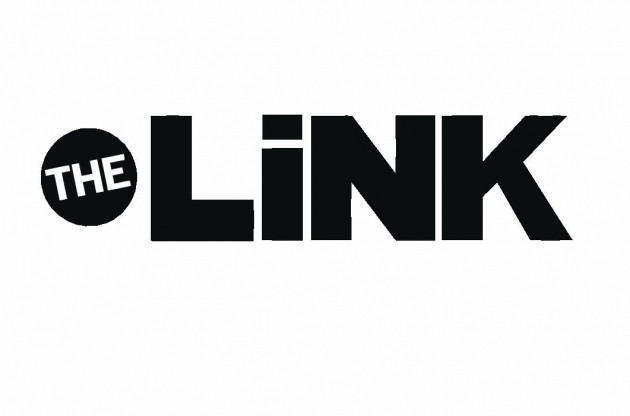Send it to the JB
Independent Body to Decide CEO’s Fate
The Judicial Board, an independent ruling body of Concordia Student Union, will hold a hearing on Nov. 2 to decide if the hiring procedure for current Chief Electoral Officer Bram Goldstein was valid.
At a Council meeting on Oct. 26, the CSU Council mandated the executive to file a procedural complaint after missing documentation suggested Goldstein’s hiring process was questionable, as it is unclear whether his predecessor ever formally resigned. Without a proper resignation, any hiring would be invalid.
This comes three weeks before a byelection in which students will vote on reformed bylaws, a variety of fee levies and on candidates seeking seats on Council.
After receiving the appeal, JB Chair Cassie Smith called a “preliminary hearing” Oct. 28 that would allow Goldstein to speak, despite the formal respondents to the complaint being last year’s Council members who appointed him.
Explaining the meeting was “not following a specific process” of the Fast-Track Procedure laid out in Section 4 of the Judicial Board Code of Procedures, Smith said the hearing was “deliberation process-based” and that it was called to decide “whether or not it makes sense to consider making a provisional decision because of the limited timeframe.”
CSU VP Outreach Morgan Pudwell took issue with the way the meeting was being held. “I am very uncomfortable with us proceeding in any way other than outlined in the [JB] code of procedures,” she said. “There’s a clear process not being followed. […] You cannot possibly call a hearing.”
Pudwell explained to the JB Chair that no process exists to “talk about his evidence or what he’d like to present. You can either officially respond [to the appeal] or you don’t.”
Smith replied that, as an “Interested Party” it was not out of bounds for Goldstein to speak. Smith said she felt it might not have been possible for Goldstein to submit a respondent brief in time, which would be required in a hearing for a final decision to be made, but that she “understood where [Pudwell] is coming from.”
“We’re going to move this back into a meeting without having people speak,” Smith finally conceded. She said she didn’t want to go outside procedure, but wanted to resolve the issue in the “fairest and quickest” way possible.“I want legitimacy too, and I also want things to happen quickly, but there is a process to follow,” said Pudwell, before the JB went into a closed-session meeting.
Goldstein, told The Link following the meeting he hadn’t decided if he was going to formally respond to the appeal.
On Oct. 28, former CSU president Heather Lucas threw her weight behind the respondents, stating former CEO Oliver Cohen’s resignation was validated at the Annual General Meeting on May 9, where he submitted his electoral report and verbally stated, “Consider this my resignation” in front of other executive members.
Lucas also alleged that, while she provided the Appointment Committee members all of the applicants’ CVs, she was unable to reach quorum after numerous attempts to hold a committee meeting.
Lucas said she told the committee via email to “select their top three candidates [and that] they would then be brought to council for the main interview.”
Lucas also stated Gill was “vehemently against” Goldstein’s candidacy in closed session, which the current president has denied. Gill said she abstained from voting for or against Goldstein.
“[In her letter, Lucas] basically validates our concerns that we brought up,” said Gill.
“Fundamentally, the only thing that we’re doing is acting on behalf of a legally binding decision of council to file a complaint with the JB on procedural issues.
“All we want is a CEO that appears legitimate and legitimately appointed by every Concordia student so that the election process of the CSU remains in some position of integrity,” she said.
On Oct. 29, former CSU Fine Arts councillor Tomer Shavit told The Link that he would be defending the respondents—officially cited in the appeal as “the CSU Council of 2010-2011”—at the JB hearing.
Shavit said he could “prove beyond a reasonable doubt that the hiring process of Goldstein was legal and went through the proper channels.”
Though he couldn’t produce a letter of resignation from the former CEO, Shavit explained, “It’s not important. If there was a letter, it’d be open-and-shut, but [this case] is already open-and-shut.”
On Oct. 31, Shavit sent a response to the JB, outlining his arguments against the appeal. Among his rebuttals were statements regarding the alleged Appointment Committee errors and that Cohen did, in fact, resign.
Shavit also submitted “new facts” concerning the “questionable timeline […] and behaviour” of Gill and a confidential email submitted to council by Pudwell.
He also suggested in his appeal that Goldstein’s possible termination could be grounds for legal action against the CSU.
In an email to The Link, Gill said that Shavit’s response had “very little fact” and that “much of it is based on hearsay, or very strong opinions.”
That same day, CUTV also submitted an appeal as another ‘Interested Party,’ claiming they were concerned they would “be treated in a prejudicial matter by Goldstein if he remains CEO in the November 2011 byelections.”
The hearing today will allow Goldstein—who is also officially registered as an “Interested Party” in the appeal—to speak.
“The bylaws state that the JB can only dismiss a CEO after giving him ‘the opportunity to be heard’ and I am committed to following the bylaws as closely as possible, in the event our decision results in a dismissal,” said Smith.
Follow @LauraBeeston on Twitter for updates on tonight’s JB hearing at 6:00 p.m. The meeting will take place in the CSU conference room.





_600_375_90_s_c1.jpg)